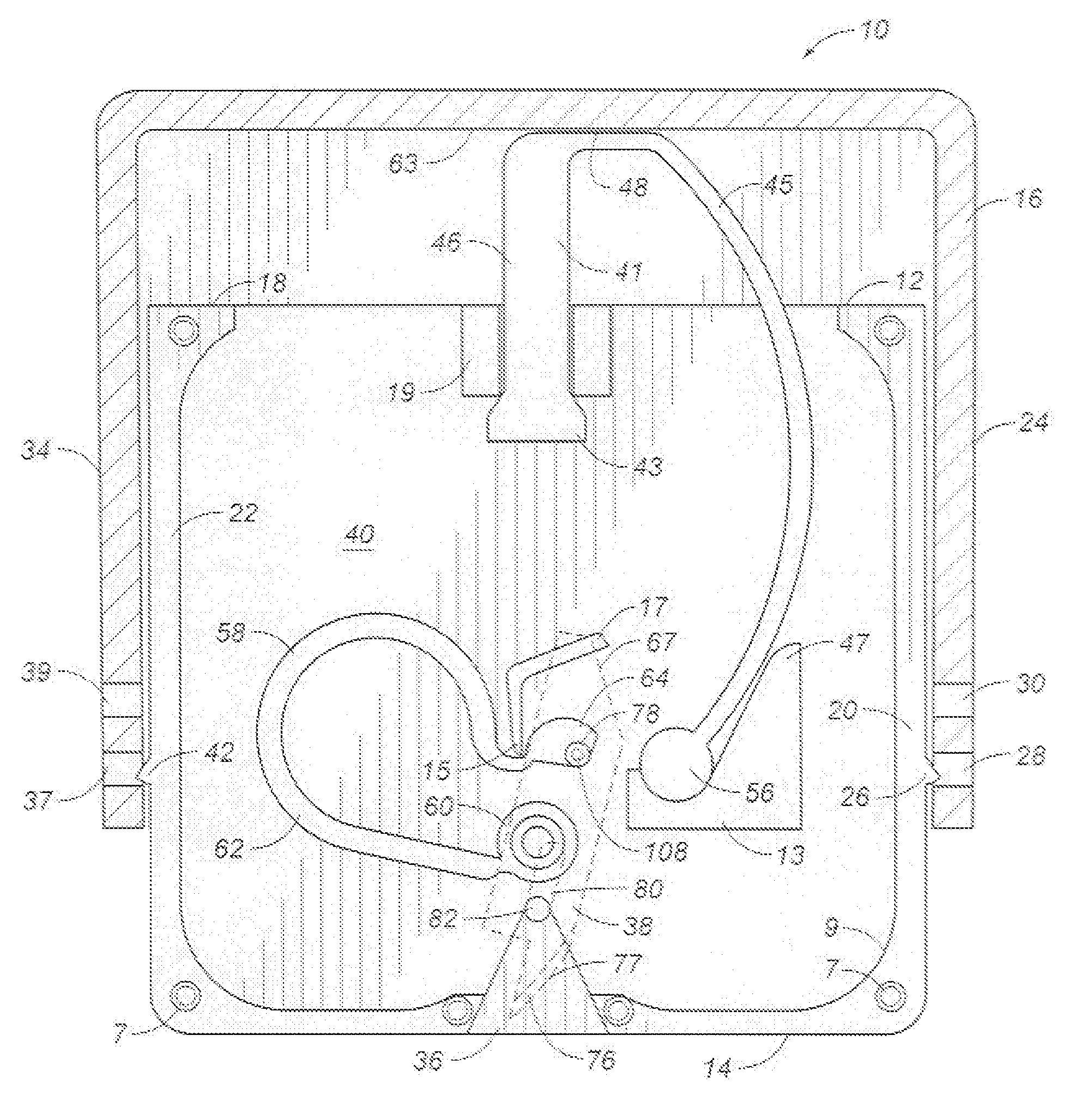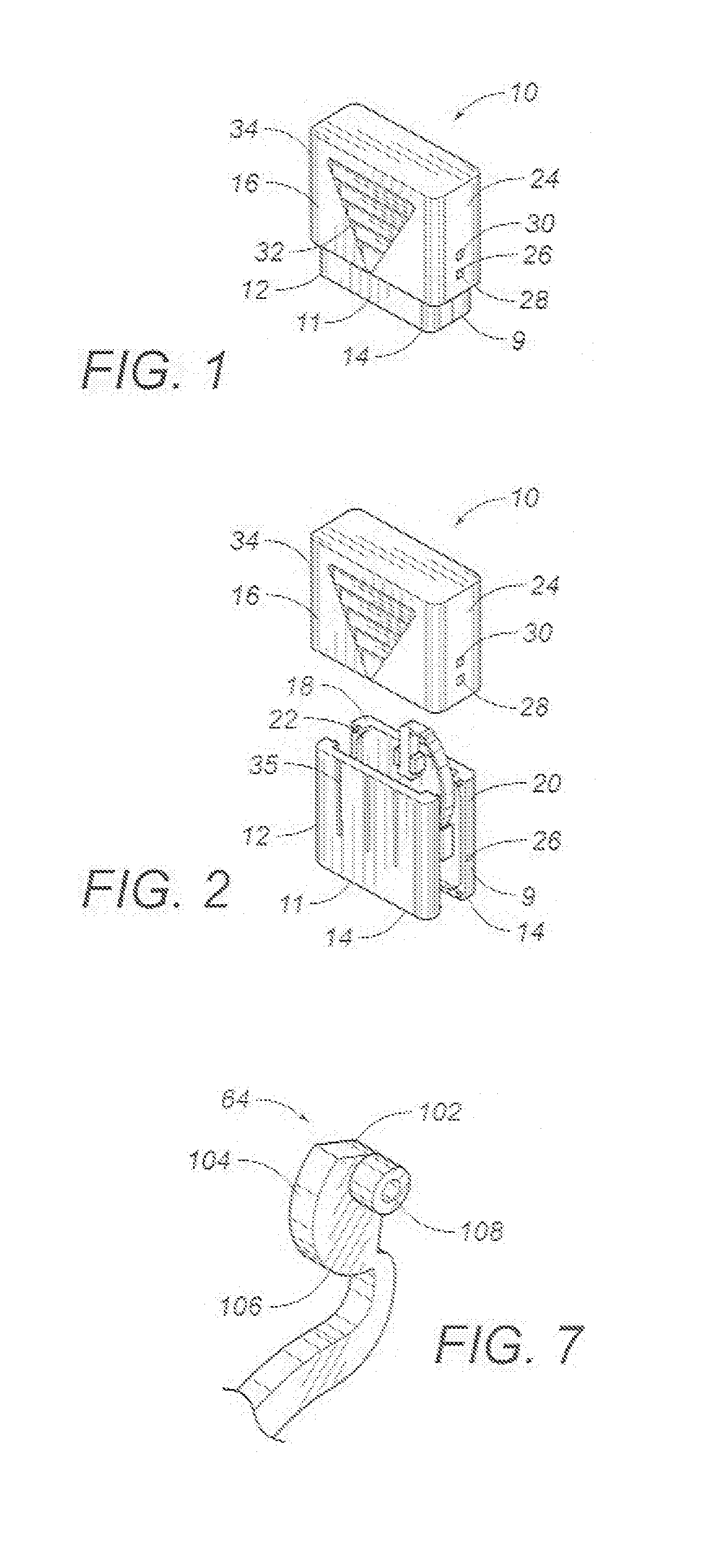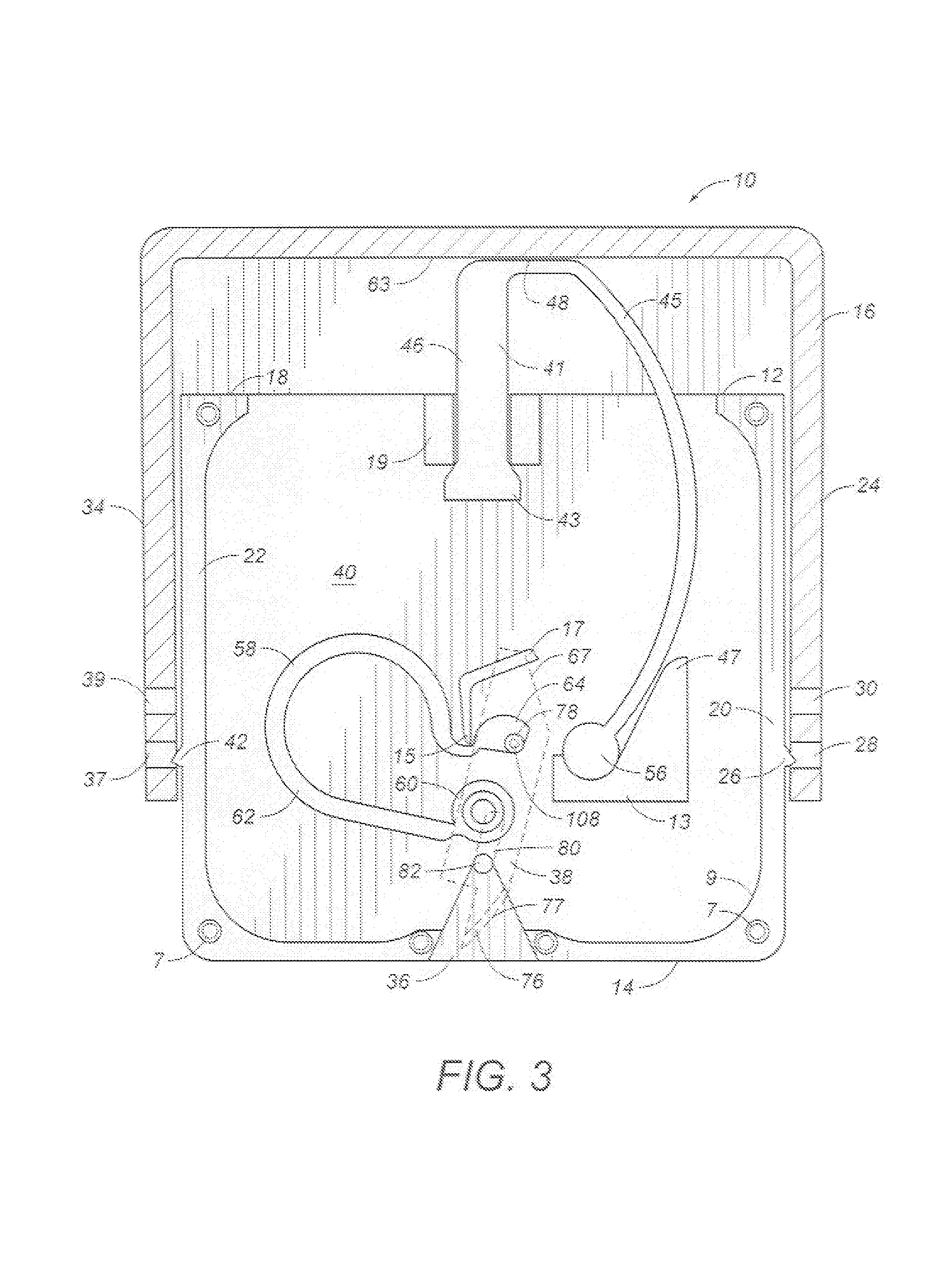Load-controlled device for a patterned skin incision
a skin incision and load control technology, applied in the field of medical devices, can solve the problems of affecting the acceptance of such devices in many countries around the world, devices were significantly more expensive than previous methods, and still subject to a variety of technical variables, so as to minimize the introduction of undesirable elements, reduce the introduction of trauma to the skin, and maintain the effect of pressure on the skin
- Summary
- Abstract
- Description
- Claims
- Application Information
AI Technical Summary
Benefits of technology
Problems solved by technology
Method used
Image
Examples
Embodiment Construction
[0046]Referring to FIGS. 1 and 2, there is shown the skin incision device 10 in accordance with the teachings of the preferred embodiment of the present invention. The skin incision device 10 includes a casing 12 having a bottom surface 14 and a cover 16 slidably positioned on the casing 12. The top cover 16 is slidable in a direction transverse to a plane of the bottom surface 14. The casing 12 can have a first panel 9 and a second panel 11.
[0047]The casing 12 has a generally open end 18 opposite the bottom surface 14. The casing 12 has sides 20 and 22 extending upwardly from the bottom surface 14. The cover 16 extends over the open end 18 of the casing 12 and has a wall 24 extending over at least a portion of the side 20 of the casing 12. The side 20 has a barb 26 extending outwardly therefrom. The wall 24 has a first retaining slot 28 and second retaining slot 30 formed above the first retaining slot 28. As can be seen in FIG. 1, the barb 26 engages the first retaining slot 28.
[0...
PUM
 Login to View More
Login to View More Abstract
Description
Claims
Application Information
 Login to View More
Login to View More - R&D
- Intellectual Property
- Life Sciences
- Materials
- Tech Scout
- Unparalleled Data Quality
- Higher Quality Content
- 60% Fewer Hallucinations
Browse by: Latest US Patents, China's latest patents, Technical Efficacy Thesaurus, Application Domain, Technology Topic, Popular Technical Reports.
© 2025 PatSnap. All rights reserved.Legal|Privacy policy|Modern Slavery Act Transparency Statement|Sitemap|About US| Contact US: help@patsnap.com



